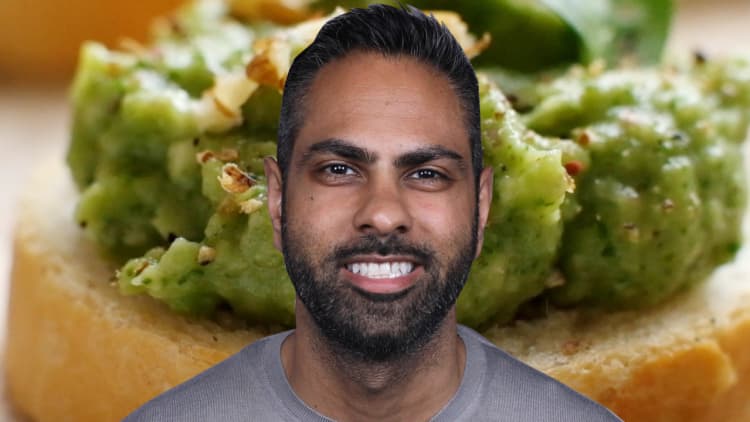If you want to build wealth, many financial experts recommend a simple tactic: Automate your finances. By paying yourself first, you're putting money toward your own future before spending it on other things.
But Grant Sabatier, who went from $2 in his bank account to $1 million in 5 years, sees it differently. If you dream of retiring early, he says, automating your finances can actually prevent you from reaching your goal.
"The whole strategy to reach financial independence as fast as possible is that you want to make and save and then invest as much money as you can," the Millennial Money founder tells CNBC Make It.
Automation, on the other hand, is "really just the status quo," Sabatier says. "It increases the chance that you're going to be complacent."
That's because, "if you're just automating your savings, you're going to be saving a consistent amount, but you're not going to be saving as much as you can."
Sabatier experienced this himself: He was able to become financially independent in his 30s, thanks to working lots of side gigs and saving 80 percent of his income.
"Automation, it's a great start," Sabatier says. "If you're saving 5 percent in your 401(k), congratulations, that's better than most people. But that's not going to be enough."
If you want to become financially independent, you need to save and invest every extra dollar you can. That could include every bonus you receive, all the profits from your side hustle and even the $50 your grandparents might send you for your birthday, Sabatier says.
If you're just automating your savings, you're going to be saving a consistent amount, but you're not going to be saving as much as you can.Grant Sabatierfounder of Millennial Money
One strategy Sabatier recommends is to increase how much you're putting in your 401(k), Roth IRA or other savings vehicles by 1 percent every 30 days. That way you're actively putting away more and more over time. "By the end of one year, you're going to be saving at least 12 percent or more," Sabatier says.
Even if you aren't able to bump up your savings rate at that pace, make time to consistently check in on your finances and look for ways you can cut back and invest more. Every little bit counts. As Sabatier puts it, if you're able to increase your savings rate from zero to 35, "you've literally cut 25 years off the time it will take you to retire."

Not everyone cares about retiring early, or even retiring at all. And extreme saving has drawbacks. Constantly turning down indulgences, from a latte to a vacation, can use up your willpower and eventually lead you to overspend, self-made millionaire and personal finance author Ramit Sethi says.
"One day, when you're 2,000 years old, you can feel great — who wants to live like that?" he points out. "Life isn't simply about cutting back."
Regardless, though, the more you're able to save and invest early on, the more time your money has to grow. Thanks to compound interest, a small amount of money invested earlier can add up to more than a larger sum invested later. And if your goal is to break free of the working world, boosting your savings for a short period could pay off for years to come.
Aggressive saving may sound daunting, but "we're not talking about doing that forever," Sabatier says. "We're talking about doing that just for a couple of years in order to bank and save and invest the difference."
Like this story? Subscribe to CNBC Make It on YouTube!
Don't miss: 34-year-old self-made millionaire: If you make $70,000, you could retire in 10 years—here's how




